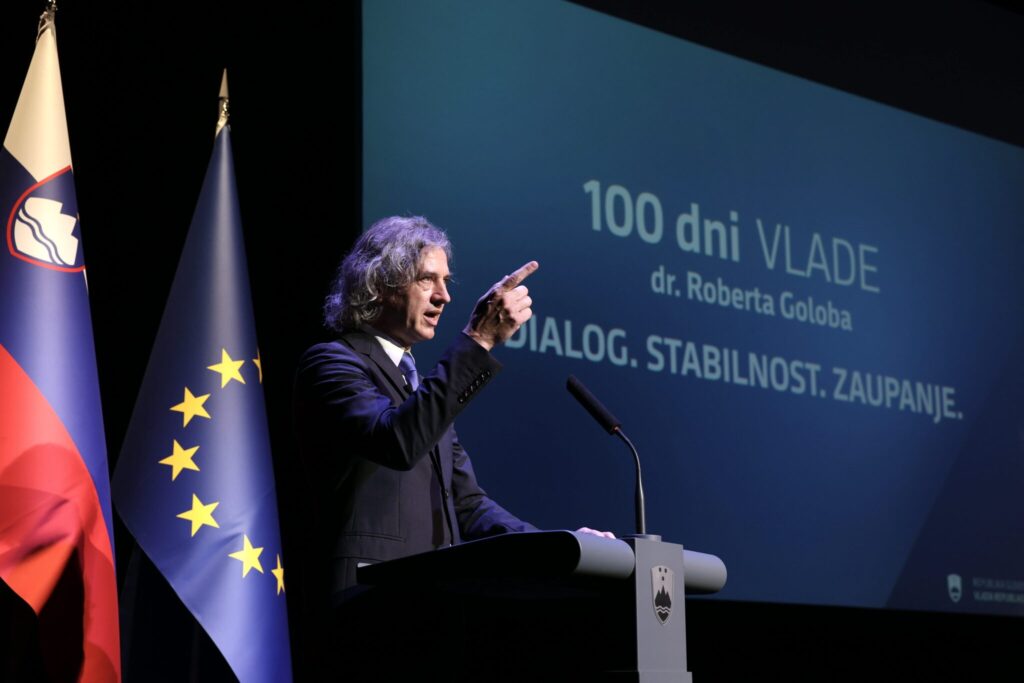On Friday, there was quite an uproar in the Slovenian public. Namely, Prime Minister Robert Golob announced an energy lockdown – he intends to shut down companies over the winter and restart them in the spring.
The current government also intends to introduce taxpayer funding for temporary layoffs, either through companies or by sending employees to the Employment Service of Slovenia.
How many companies will Slovenia shut down?
Golob announced the closure of some companies in the automotive sector. “It makes sense to shut them down at the beginning of the year, in winter, to save energy, and then restart them in March and April, once the winter is over. This is just an example. A similar thing is happening in some other industries as well,” said Golob. The reason is said to be the energy crisis, energy shortages and a commitment made to the European Union that Slovenia would reduce its gas consumption by 15 percent. The European deal between this March and the next March came into force on the 9th of August. The Golob government could have claimed exceptions but did not. This was also pointed out in a recent article in the newspaper Finance. The commitment to reduce gas consumption is voluntary. And it is clear that the Golob government agreed to it without actually thinking about it.
Which companies will be closed and how?
The government is working on a so-called “elasticity review” – what are the energy prices at which the industry can operate competitively in a global sense – “and based on this, we can then make a better decision,” Golob said.
He announced that the measure of temporary layoffs will be introduced again. “This will be co-financed by the state for those industries for which it makes more sense to wait for work over the winter, rather than to use energy products… In Slovenia, we are at an 8 percent reduction today, which means we are halfway there (we need to get to 15). So, it will not be as radical of a change as some feared at the beginning,” Golob said.
“Well, for the companies that will be closed instead of working, this will be the most radical change imaginable,” the newspaper Finance commented on Golob’s words.
Slovenia 5th worst at helping the economy; confidence is falling
On Thursday, the Commission for Public Finance Control met in the National Assembly to discuss the country’s support during the energy crisis. It was pointed out that the economic climate in Slovenia has fallen by almost 7 percent in recent weeks, with the biggest drop being in the confidence indicator.
It also turns out that Slovenia is the 5th worst country among the countries that have helped the economy during this energy crisis. We are, of course, talking about actions taken during Golob’s government’s term. The latter has not yet given any serious assurances to companies about what measures it will take to help them through the energy crisis, so companies are having a very difficult time preparing their business plans for 2023.
Meanwhile, the Golob government is also not doing anything to avoid a speculative market in the energy sector.
The Golob government is also not listening to the business sector, which has asked it to introduce a price limit instrument for electricity and gas, at least for the year 2023, along the lines of other European countries. For example, Spain and Portugal have already done this.
The company Akrapovič went from 0.6 to 7 million euros for electricity
At the meeting of the commission, Jure Knez, a representative of the Slovenian Business Club, also revealed that in the past, the company Akrapovič was paying 600 thousand euros for electricity, and now they will have to pay 7 million euros, without knowing what is in store for them in the coming years.
Announcements of a 15-fold increase
The situation is very critical elsewhere as well. Businesses are already paying up to seven times more for electricity. As of the 1st of January 2023, prices are forecast to be up to 15 times higher than in 2021.
With such prices, the economy, including tourism, will not survive. Hotels will close, ski resorts will not be able to make snow, and so on. And once the businesses close their doors, it is very questionable whether they will ever open them again, Knez warned.
The price of energy from the nuclear power plant is unchanged; the Sava River still flows just the same
The economic sector pointed out that energy management could be better. “Because the price of a megawatt hour from a power plant, say from a nuclear power plant, is still around 30, 35 euros per megawatt hour.” So, the Sava River still flows the same. Water is still free. However, the traders are now demanding that businesses pay prices of up to 900 euros per megawatt hour.
Janez Janša pointed out months ago that electricity prices should be regulated at the EU level and that the formula for setting them, which is linked to the price of gas, should be abolished. The European Commission has promised to sort this out by mid-May.
However, the lobbyists and speculators have prevented this from happening, nothing has changed, and Golob is apparently going along with it, because he has not been heard talking about this at all. Instead, he prefers to talk about closing down the economy. However, the closure will lead to disaster. Anyone can understand that.


